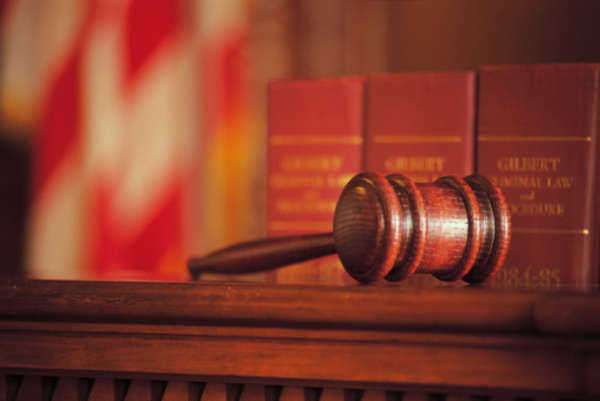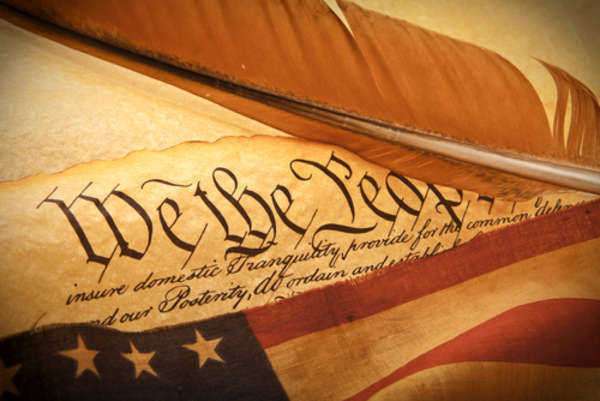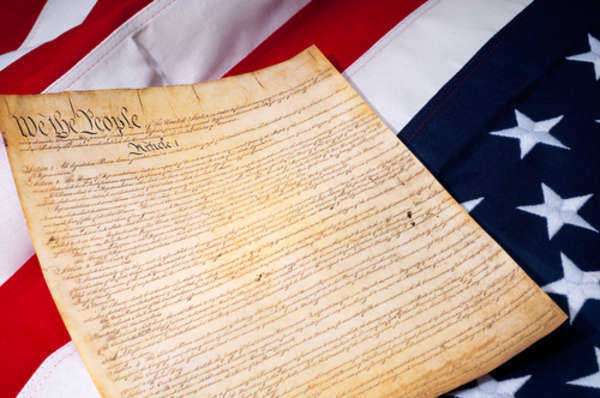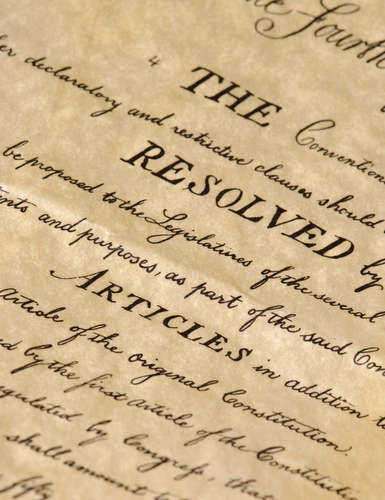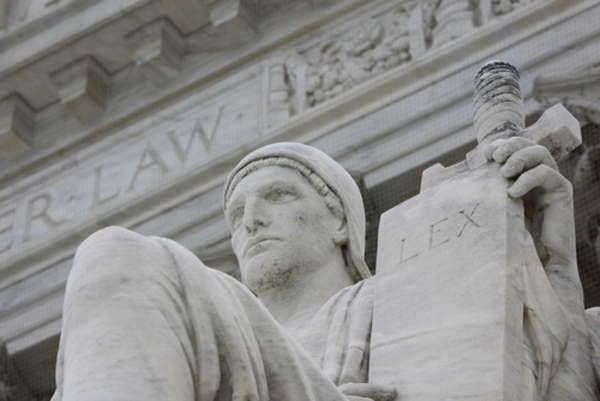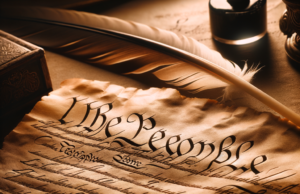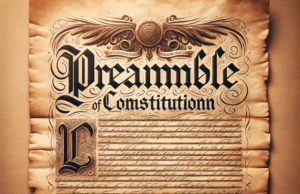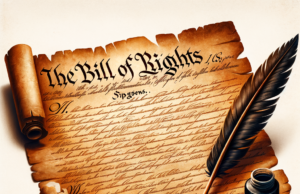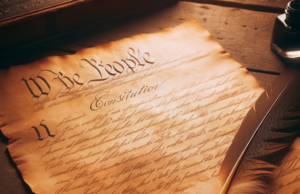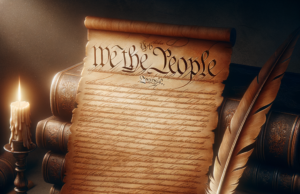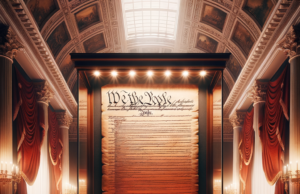
Introduction
The Jones Act, also known as the Merchant Marine Act of 1920, is a U.S federal law that regulates maritime commerce in American waters and between American ports. It has been the subject of much discussion and debate over the years, with some arguing that it provides essential protections for American workers and industries, while others claim that it inhibits competition and drives up costs. In this article, we will explore the text of the Jones Act, its history, its impact, and the arguments for and against it.
History of the Jones Act
The Jones Act was originally passed in 1920 as a response to the devastating effects of World War I on the U.S. maritime industry. At the time, the United States was heavily dependent on foreign ships and crews to transport goods and people between American ports, and the war had severely disrupted this trade.
The Jones Act sought to remedy this by requiring that all goods shipped between American ports be transported on American-built, American-owned, and American-operated vessels that were crewed by American citizens or permanent residents. It also required that a significant portion of the vessel’s crew be composed of American citizens or permanent residents.
In addition to strengthening the U.S. maritime industry, the Jones Act was also seen as a way to enhance national security by ensuring that the U.S. had a strong domestic shipping industry in times of war or other emergencies.
Text of the Jones Act
The text of the Jones Act is relatively straightforward, albeit with some complexities and variations that have been added over the years. The following are some of the key provisions of the law:
Section 1: “Any vessel which shall be built in the United States after the date of the enactment of this Act, and whose builder desires her to be regarded as an American vessel…shall be inspected by the proper authorities of the United States.”
This section mandates that any vessel wishing to be classified as an American vessel must be inspected by U.S. authorities in order to ensure that it meets the requirements of the law.
Section 2: “No merchandise shall be transported by water, or by land and water, on penalty of forfeiture thereof, between points in the United States…unless it shall be transported in vessels built in and documented under the laws of the United States and owned by persons who are citizens of the United States.”
This section mandates that all goods transported between American ports must be carried on American-built, American-owned, and American-operated vessels that are crewed by American citizens or permanent residents.
Section 3: “Except as otherwise provided in this section and section 4 of this Act, a vessel may not engage in the coastwise trade of the United States unless the vessel…(A) was built in the United States; and (B) is owned by a citizen of the United States…No vessel which is built before August 1, 1920, shall be deemed a vessel of the United States under this section unless it is documented under the laws of the United States on August 1, 1920, and complies…with those laws as to nationality, ownership, and registry.”
This section requires that vessels engaged in the coastwise trade (transporting goods between American ports) must be American-built, American-owned, and American-operated. It also includes provisions for pre-existing vessels that were documented under U.S. law before the enactment of the Jones Act.
Impact of the Jones Act
The Jones Act has had a significant impact on the U.S. maritime industry, American workers, and the cost of transporting goods between American ports. Supporters of the Act argue that it has helped to protect American jobs and industries by ensuring that American vessels and crews are used in domestic trade. They also claim that the Act enhances national security by ensuring that the U.S. has a strong domestic shipping industry in times of war or other emergencies.
However, opponents of the Act argue that it has had the opposite effect, inhibiting competition and driving up costs. They claim that the Act has led to a shortage of available ships and higher transportation costs, which ultimately harms American consumers and businesses. They also argue that the Act has led to a lack of innovation and investment in the U.S. maritime industry, as American companies are protected from competition and have little incentive to improve their operations.
Arguments For and Against the Jones Act
Supporters of the Jones Act argue that it provides essential protection for American workers and industries. They claim that without the Act, foreign companies would flood the U.S. market with cheap ships and
labor, ultimately driving American operators out of business. They also argue that the Act helps to protect national security by ensuring that the U.S. has a strong domestic shipping industry in times of war or other emergencies.
Opponents of the Act argue that it is protectionist and ultimately harms American consumers and businesses. They claim that the Act inhibits competition and innovation, leading to higher transportation costs and a lack of investment in the U.S. maritime industry. They also argue that the Act has led to a shortage of available ships and crews, which ultimately harms American businesses that rely on domestic shipping.
Conclusion
The Jones Act remains a contentious and controversial law, with both supporters and opponents fiercely advocated for their positions. The Act has had a significant impact on the U.S. maritime industry and has helped to shape the American economy for nearly a century. As discussions about the future of the Act continue, it is important to understand both the history and the text of the law, as well as the arguments for and against it.
TITLE 46, APPENDIX–SHIPPING
CHAPTER 24–MERCHANT MARINE ACT, 1920
Sec. 883. Transportation of merchandise between points in the United States in other than domestic built or rebuilt and documented vessels; incineration of hazardous waste at sea No merchandise, including merchandise owned by the United States Government, a State (as defined in section 2101 of the 1 title 46), or a subdivision of a State shall be transported by water, or by land and water, on penalty of forfeiture of the merchandise (or a monetary amount up to the value thereof as determined by the Secretary of the Treasury, or the actual cost of the transportation, whichever is greater, to be recovered from any consignor, seller, owner, importer, consignee, agent, or other person or persons so transporting or causing said merchandise to be transported), between points in the United States, including:
Districts, Territories, and possessions thereof embraced within the coastwise laws, either directly or via a foreign port, or for any part of the transportation, in any other vessel than a vessel built-in and documented under the laws of the United States and owned by persons who are citizens of the United States, or vessels to which the privilege of engaging in the coastwise trade is extended by section 808 of this
Appendix or section 22 2 of this Act:
Provided, That no vessel having at any time acquired the lawful right to engage in the coastwise trade, either by virtue of having been built in, or documented under the laws of the United States, and later sold foreign in whole or in part, or placed under foreign registry, shall hereafter acquire the right to engage in the coastwise trade: Provided further, That no vessel which has acquired the lawful right to engage in the coastwise trade, by the virtue of having been built in or documented under the laws of The United States, and which has later been rebuilt shall have the right thereafter to engage in the coastwise trade, unless the entire rebuilding, including the construction of any major components of the hull or superstructure of the vessel is effected within the United States, its territories (not including trust territories), or its possessions:
Provided further, That this section shall not apply to merchandise transported between points within the continental United States, including Alaska, over through routes heretofore or hereafter recognized by the Interstate Commerce Commission for which routes rate tariffs have been or shall hereafter be filed with said Commission when such routes are in part over Canadian rail lines and their own or other connecting water facilities:
Provided further, That this section shall not become effective upon the Yukon River until the Alaska Railroad shall be completed and the Secretary of Transportation shall find that proper facilities will be furnished for transportation by persons citizens of the United States for properly handling the traffic:
Provided further, That this section shall not apply to the transportation of merchandise loaded on railroad cars or to motor vehicles with or without trailers, and with their passengers or contents when accompanied by the operator thereof, when such railroad cars or motor vehicles are transported in any railroad car ferry operated between fixed termini on the Great Lakes as a part of a rail route, if such car ferry is owned by a common carrier by water and operated as part of a rail route with the approval of the Interstate Commerce Commission, and if the stock of such common carrier by water, or its predecessor was owned or controlled by a common carrier by rail prior to June 5, 1920, and if the stock of the common carrier owning such car ferry is, with the approval of the Interstate Commerce Commission, now owned or controlled by any common carrier by rail and if such car ferry is built-in and documented under the laws of the United States:
Provided further, That upon such terms and conditions as the Secretary of the Treasury by regulation may prescribe, and, if the transporting vessel is of foreign registry, upon a finding by the Secretary of the Treasury, pursuant to information obtained and furnished by the Secretary of State, that the government of the nation of registry extends reciprocal privileges to vessels of the United States, this section shall not apply to the transportation by vessels of the United States not qualified to engage in the coastwise trade, or by vessels of foreign registry, of
(a) Empty cargo vans, empty lift vans, and empty shipping tanks
(b) Equipment for use with cargo vans, lift vans, or shipping tanks
(c) Empty barges specifically designed for carriage aboard a vessel and equipment, excluding propulsion equipment, for use with such barges
(d) Any empty instrument for international traffic exempted from application of the customs laws by the Secretary of the Treasury pursuant to the provisions of section 1322
(a) Of title 19, if the articles described in clauses (a) through (d) are owned or leased by the owner or operator of the transporting vessel and are transported for his use in handling his cargo in foreign trade; and (e) stevedoring equipment and material, if such equipment and material is owned or leased by the owner or operator of the transporting vessel, or is owned or leased by the stevedoring company contracting for the lading or unlading of that vessel, and is transported without charge for use in the handling of cargo in foreign trade:
Provided further, That upon such terms and conditions as the Secretary of the Treasury by regulation may prescribe, and, if the transporting the vessel is of foreign registry, upon his finding, pursuant to information furnished by the Secretary of State, that the government of the nation of registry extends reciprocal privileges to vessels of the United States, the Secretary of the Treasury may suspend the application of this section to the transportation of merchandise between points in the United States (excluding transportation between the continental United States and noncontiguous states, districts, territories, and possessions embraced within the coastwise laws) which, while moving in the foreign trade of the United States is transferred from a non-self-propelled bargen certified by the owner or operator to be specifically designed for carriage aboard a vessel and regularly carried aboard a vessel in foreign trade to another such barge owned or leased by the same owner or operator, without regard to whether any such barge is under foreign registry or qualified to engage in the coastwise trade:
Provided further, That until April 1, 1984, and notwithstanding any other provisions of this section, any vessel documented under the laws of the The United States and owned by persons who are citizens of the United States may, when operated upon a voyage in foreign trade, transport merchandise in cargo vans, lift vans, and shipping-tanks between points embraced within the coastwise laws for transfer to or when transferred from another vessel or vessels, so documented and owned, of the same operator when the merchandise movement has either a foreign origin or a foreign destination;
But this proviso (1) shall apply only to vessels which that the same operator owned, chartered, or contracted for the construction of prior to November 16, 1979, and (2) shall not apply to movements between points in the contiguous United States and points in Hawaii, Alaska, the Commonwealth of Puerto Rico and United States territories and possessions. For the purposes of this section, after December 31, 1983, or after such time as an appropriate vessel has been constructed and documented as a vessel of the United States, the transportation of hazardous waste, as defined in section 6903(5) of title 42, from a point in the United States for the purpose of the incineration at sea of that waste shall be deemed to be transportation by water of merchandise between points in the United States:
Provided, however, That the provisions of this sentence shall not apply to this transportation when performed by a foreign-flag ocean incineration vessel, owned by or under construction on May 1, 1982, for a corporation wholly owned by a citizen of the United States; the term “citizen of the United States”, as used in this proviso, means a corporation as defined in section 802(a) and (b) of this Appendix. The incineration equipment on these vessels shall meet all current United States Coast Guard and Environmental Protection Agency standards.
These vessels shall, in addition to any other inspections by the flag state, be inspected by the United States Coast Guard, including drydock inspections and internal examinations of tanks and void spaces, as would be required of a vessel of the United States. The satisfactory inspection shall be certified in writing by the Secretary of Transportation. Such inspections may occur concurrently with any inspections required by the flag state or subsequent to but no more than one year after the initial issuance or the next scheduled issuance of the Safety of Life at Sea Safety Construction Certificate. In making such inspections, the Coast Guard shall refer to the conditions established by the initial flag state certification as the basis for evaluating the current condition of the hull and superstructure.
The Coast Guard shall allow the substitution of an equivalent fitting, material, appliance, apparatus, or equipment other than that required for vessels of the United States if the Coast Guard has been satisfied that fitting, material, appliance, apparatus, or equipment is at least as effective as that required for vessels of the United States 3 Provided further, That for the purposes of this section, supplies aboard The United States documented fish processing vessels, which are necessary and used for the processing or assembling of fishery products aboard such vessels, shall be considered ship’s equipment and not merchandise:
Provided further, That for purposes of this section, the term “merchandise” includes valueless material:
Provided further, That this section applies to the transportation of valueless material or any dredged material regardless of whether it has commercial value, from a point or place in the United States or a point or place on the high seas within the Exclusive Economic Zone as defined in the Presidential Proclamation of March 10, 1983, to another point or place in the United States or a point or place on the high seas within that Exclusive Economic Zone:
Provided further, That the transportation of any platform jacket in or on a launch barge between two points in the United States, at one of which there is an installation or other device within the meaning of section 1333(a) of title 43, shall not be deemed transportation subject to this section if the launch barge has a launch the capacity of 12,000 long tons or more, was built as of June 7, 1988, and is documented under the laws of the United States, and the platform the jacket cannot be transported on and launched from a launch barge of lesser launch capacity that is identified by the Secretary of Transportation and is available for transportation.
—————————————————————————
1. So in original. The word “the” probably should not appear.
2. See References in Text note below.
3. So in original. Probably should be followed by a colon.
—————————————————————————
(June 5, 1920, ch. 250, Sec. 27, 41 Stat. 999; Ex. Ord. No. 6166,
Sec. 12, eff. June 10, 1933; Apr. 11, 1935, ch. 58, 49 Stat. 154; July
2, 1935, ch. 355, 49 Stat. 442; June 29, 1936, ch. 858, title II,
Sec. 204, title IX, Sec. 904, 49 Stat. 1987, 2016; 1950 Reorg. Plan No.
21, Sec. 204, eff. May 24, 1950, 15 F.R. 3178, 64 Stat. 1276; July 14,
1956, ch. 600, Sec. 1, 70 Stat. 544; July 7, 1958, Pub. L. 85-508,
Sec. 27(a), 72 Stat. 351; July 5, 1960, Pub. L. 86-583, Sec. 1, 74 Stat.
321; Sept. 21, 1965, Pub. L. 89-194, 79 Stat. 823; Aug. 11, 1968, Pub.
L. 90-474, 82 Stat. 700; Nov. 23, 1971, Pub. L. 92-163, Sec. 1, 85 Stat.
486; Oct. 3, 1978, Pub. L. 95-410, title II, Sec. 213, 92 Stat. 904;
Nov. 16, 1979, Pub. L. 96-112, Sec. 4, 93 Stat. 848; Aug. 6, 1981, Pub.
L. 97-31, Sec. 12(49), 95 Stat. 157; Dec. 29, 1982, Pub. L. 97-389,
title V, Secs. 502, 504, 96 Stat. 1954, 1956; Jan. 11, 1988, Pub. L.
100-239, Sec. 6(c)(1), 101 Stat. 1782; June 7, 1988, Pub. L. 101-329,
Sec. 1(a), 102 Stat. 588; Nov. 4, 1992, Pub. L. 102-587, title V,
Sec. 5501(b), 106 Stat. 5085.)
References in Text
Section 22 of this Act, referred to in text, is section 22 of the act June 5, 1920, which was classified to section 13 of former Title 46, Shipping, and was repealed by Pub. L. 100-710, title II, Sec. 202(4), Nov. 23, 1988, 102 Stat. 4753. The Presidential Proclamation of March 10, 1983, referred to in text, is Proc. No. 5030, Mar. 10, 1983, 48 F.R. 10605, which is set out as a note under section 1453 of Title 16, Conservation.
Prior Provisions
Provisions similar to those in this section were contained in act Feb. 17, 1898, ch. 26, Sec. 1, 30 Stat. 248, which was classified to section 290 of this Appendix.
Amendments
1992–Pub. L. 102-587, in the first sentence, substituted “No merchandise, including merchandise owned by the United States Government, a State (as defined in section 2101 of the title 46), or a subdivision of a State,” for “No merchandise”. 1988–Pub. L. 100-329 inserted provision relating to alternate determination of penalty as based on the actual cost of the transportation, and provisos defining term “ merchandise” to include valueless material, making section applicable to valueless or dredged material, and relating to the transportation of any platform jacket in or on a launch barge. Pub. L. 100-239 struck out “of more than five hundred gross tons” after “no vessel” in the second proviso. 1982–Pub. L. 97-389, Sec. 502, the inserted provision relating to the transportation of hazardous waste, the proviso thereto for foreign-flag transport, and further provisions relating to standards for and the inspection of vessels engaged in such transport.
Pub. L. 97-389, Sec. 504, inserted proviso defining supplies aboard The United States fish processing vessels used for fishery products manufacture as ship’s equipment. 1981–Pub. L. 97-31 in the fourth proviso substituted “Secretary of Transportation” for “Secretary of Commerce”. For prior transfers of functions, see Transfer of Functions note below. 1979–Pub. L. 96-112 inserted proviso that, until April 1, 1984, and notwithstanding any other provisions of this section, any vessel documented under the laws of the United States and owned by citizens of the United States could, when operated upon a voyage in foreign trade, transport merchandise in cargo vans, lift vans, and shipping-tanks between points embraced within the coastwise laws for transfer to or when transferred from another vessel or vessels, so documented and owned, of the same operator when the merchandise movement had either a foreign origin or a foreign destination, but that the proviso would apply only to vessels which that same operator owned, chartered orcontracted for the construction of prior to Nov. 16, 1979, and would not apply to movements between points in the contiguous United States and points in Hawaii, Alaska, the Commonwealth of Puerto Rico, and the United States territories and possessions.
1978–Pub. L. 95-410, in the first sentence, substituted “forfeiture of merchandise” for “forfeiture thereof” and inserted parenthetical text for forfeiture of a monetary amount up to the value of the merchandise as determined by the Secretary of the Treasury to be recovered from any consignor, seller, owner, importer, consignee, agent, or other person or persons transporting or causing the merchandise to be transported. 1971–Pub. L. 92-163 inserted “and equipment, excluding propulsion equipment, for use with such barges” after “(c) empty barges specifically designed for carriage aboard a vessel” and inserted reciprocity proviso reciprocally permitting foreign-flag Specialty barges, specifically designed and regularly carried aboard a barge carrying ship in foreign trade to carry export or import cargo between United States points which have been transferred from one such barge to another.
1968–Pub. L. 90-474 in final proviso designated existing provisions relating to empty cargo vans, empty lift vans, and empty shipping tanks as cl. (a), added cls. (b) to (d), saved modifying provisions relating to empty cargo vans, empty lift vans, and empty shipping tanks so as to render them applicable to cls. (a) to (d), and added cl. (e). 1965–Pub. L. 89-194 inserted proviso that section should not apply to the transportation of empty cargo vans, lift vans, and shipping tanks by vessels of the United States not qualified to engage in the coastwise trade of by vessels of foreign registry so long as such vans or tanks are owned or leased by the owner or operator of the transporting vessels and are being transported for use in the carriage of goods in foreign trade.
1960–Pub. L. 86-583 prohibits the operation in the coastwise trade of a rebuilt vessel unless the entire rebuilding, including the construction of any major components of the hull and superstructure of the vessel is accomplished in the United States. 1958–Pub. L. 85-508 substituted “including Alaska” for “excluding Alaska”. 1956–Act July 14, 1956, inserted proviso to prohibit the operation in the coastwise trade of vessels of more than 500 gross tons which have been rebuilt outside the United States. 1935–Act July 2, 1935, amended section generally. Act Apr. 11, 1935, inserted the fifth proviso.
Effective Date of 1988 Amendment
Section 6(c)(2) of Pub. L. 100-239 provided that: “Paragraph (1) of this subsection [amending this section] does not apply to a vessel under contract to be purchased or rebuilt entered into before July 28, 1987, if that vessel is rebuilt before July 28, 1990.”
Effective Date of 1960 Amendment
Section 4 of Pub. L. 86-583 provided that: “This Act [amending this section and section 883a of this Appendix] shall be effective from the time of enactment [July 5, 1960] hereof: Provided, however, That no the vessel shall be deemed to have lost its coastwise privileges as a result of the amendments made by this Act if it is rebuilt within the United States, its Territories (not including trust territories), or its possessions under a contract executed before such date of enactment and if the work of rebuilding is commenced not later than twenty-four months after such date of enactment.”
Effective Date of 1956 Amendment
Section 4 of act July 14, 1956, provided that: “This Act [amending this section and enacting sections 883a and 883b of this Appendix] shall be effective from the date of enactment [July 14, 1956] hereof: Provided, however, That no vessel shall be deemed to have lost its coastwise privileges hereunder if it is rebuilt under a contract entered into before such date of enactment and if the work of rebuilding is commenced not later than six months after such date of enactment.”
Repeals
For the effect of subtitle IV (Sec. 10101 et seq.) of Title 49, Transportation, see note set out preceding section 801 of this Appendix.
Transfer of Functions
Functions conferred upon Secretary of Commerce by provisions of Reorg. Plan No. 21 of 1950 to remain vested in Secretary except to extent inconsistent with sections 101(b) and 104(b) of Reorg. Plan No. 7 of 1961. See section 202 of Reorg. Plan No. 7 of 1961, set out under section 1111 of this Appendix. “Secretary of Commerce” substituted in text for “United States Maritime Commission” on the authority of Reorg. Plan No. 21 of 1950, set out under section 1111 of this Appendix, section 306 of which abolished United States Maritime Commission and section 204 of which transferred to Secretary of Commerce such Commission’s functions not transferred to Federal Maritime Board.
Previously, “United States Maritime Commission” substituted for “Shipping Board”. For dissolution of Board and transfer of functions to United States Maritime Commission, see Ex. Ord. No. 6166 and act June 29, 1936. Ex. Ord. No. 6166 is set out as a note under section 901 of Title 5, Government Organization, and Employees. Executive and administrative functions of United States Maritime Commission transferred to Chairman thereof by Reorg. Plan No. 6 of 1949, eff. Aug. 20, 1949, 14 F.R. 5228, 63 Stat. 1069, set out under section 1111 of this Appendix.
Non applicability of Pub. L. 100-329 to Certain Vessels Section 5501(c) of Pub. L. 102-587 provided that: “The Act of June 7, 1988 (Public Law 100-329; 102 Stat. 588) [amending this section and section 316 of this Appendix, and enacting provisions set out above and below], including the amendments made by that Act, does not apply to a vessel–
“(1) engaged in the transportation of valueless material or valueless dredged material; and
“(2) owned or chartered by a corporation that had on file with the Secretary of Transportation on August 1, 1989, the certificate specified in section 27A of the Merchant Marine Act, 1920 (46 App. U.S.C. 883-1).”
Launch Barge Inventory; Purpose; Development, Maintenance, and Updating; Contents; Publication of Initial and Current Inventory
Section 1(b) of Pub. L. 100-329 provided that:
“(1) For purposes of interpreting the proviso pertaining to transportation of any platform jacket by launch barge, as added by subsection (a) of this section to section 27 of the Merchant Marine Act, 1920 (46 App. U.S.C. 883), the Secretary of Transportation shall develop, maintain, and periodically update an inventory of launch barges with less than a launch capacity of 12,000 long tons that are qualified to engage in the coastwise trade. Each launch barge listed on such the inventory shall be identified by its name, launch capacity, length, beam, depth, and other distinguishing characteristics. For each such launch barge, the name, and address of the person to whom inquiries may be made shall also be included in the inventory.
A launch barge not listed on such inventory shall be deemed not to be `a launch barge of lesser launch capacity identified by the Secretary of Transportation’ within the meaning of such proviso to section 27 of the Merchant Marine Act, 1920.
“(2) Not later than 15 days after the date of enactment of this Act [June 7, 1988], the Secretary of Transportation shall publish in the Federal Register an initial inventory of launch barges developed and maintained in accordance with paragraph (1) of this subsection.
“(3) Not later than 60 days after the date of enactment of this Act [June 7, 1988], and periodically thereafter, the Secretary shall publish in the Federal Register, a current inventory of launch barges developed, maintained, and updated in accordance with paragraph (1) of this subsection.”
Transportation of Municipal Sewage Sludge
Section 3 of Pub. L. 100-329 provided that: “Notwithstanding the provisions of section 1 of this Act [amending this section and enacting provisions set out as a note above], a vessel may transport municipal sewage sludge if that vessel, regardless of where it was built, is documented under the laws of the United States and, on the date of enactment of this Act [June 7, 1988], that vessel–
“(1) is in use by a municipality for the transportation of sewage sludge; or
“(2) is under contract with a municipality for the transportation of sewage sludge.”
Vessel Under Contract With Municipality for Transportation of Sewage Sludge: Applicability of Provisions
Section 4 of Pub. L. 100-329 provided that: “For purposes of the first paragraph of section 805(a) of the Merchant Marine Act, 1936 (46 App. U.S.C. 1223(a)), a vessel described in section 3(2) of this Act [set out as a note above] is not a vessel engaged in domestic intercoastal or coastwise service, but the prohibitions in the second paragraph applies to that vessel.”
Certificate of Documentation to Vessel Transporting Valueless Material in Coastwise Trade, or Dredged Material, Whether or Not of Value; Issuance, Endorsement, Etc. Section 5 of Pub. L. 100-329 provided that: “Notwithstanding the provisions of section 1 of this Act [amending this section and enacting provisions set out as a note above], the Secretary of the department in which the Coast Guard is operating may issue a certificate of documentation under section 12106 of title 46, United States Code, to a vessel that–
“(1) is engaged in transporting only valueless material in the coastwise trade or transporting dredged material, whether or not of value, (A) from a point or place on the high seas within the Exclusive Economic Zone as defined in the Presidential Proclamation of March 10, 1983 [16 U.S.C. 1453 note], to a point or place in the The United States or to another point or place on the high seas within such Exclusive Economic Zone or (B) from a point or place within The United States to a point or place on the high seas within such Exclusive Economic Zone;
“(2) had a certificate of documentation issued under section 12105 of that title on October 1, 1987;
“(3) had been sold foreign or placed under a foreign registry before that certificate was issued; and
“(4) was built in the United States; except that such certificate of documentation shall be endorsed to restrict the use of such vessel to the transportation of valueless the material in the coastwise trade, and to the transportation of dredged material, whether or not of value, (i) from a point or place on the high seas within such Exclusive Economic Zone to a point or place in the The United States or to another point or place on the high seas within such Exclusive Economic Zone, or (ii) from a point or place within the United States to a point or place on the high seas within such Exclusive Economic Zone.”
Transportation of Merchandise or Passengers Within Alaska by Foreign Built Hovercraft Pub. L. 95-599, title I, Sec. 146, Nov. 6, 1978, 92 Stat. 2714, provided that:
“(a) Effective during the five-year period beginning on the date of enactment of this Act [Nov. 6, 1978], nothing in section 27 of the Merchant Marine Act, 1920 [this section], or any other provision of law restricting the coastwise trade to vessels of the United States shall prohibit the transportation within the State of Alaska of merchandise or passengers by foreign-built hovercraft.
“(b) For the purpose of this section the term `hovercraft’ means a a vehicle which travels over land or water in a cushion of air generated by such vehicle.” Report to Congress Regarding Effect of Reciprocity Provisions Section 2 of Pub. L. 92-163 authorized the Secretary of the Treasury, for a period of five years following Nov. 23, 1971, to make a report at the beginning of each regular session to the Congress regarding activities under Pub. L. 92-163, including but not limited to the extent to which foreign governments are extending reciprocal privileges to the vessels of the United States.
Regulations Section 3 of Pub. L. 86-583 provided that: “The Secretary of the Treasury shall prescribe such regulations as may be necessary to carry out the purposes of this Act [amending sections 883 and 883a of this Appendix].”
Admission of Alaska as State Effectiveness of amendment of this section by Pub. L. 85-508 was dependent upon the admission of Alaska into the Union under section 8(b) of Pub. L. 85-508. Admission was accomplished Jan. 3, 1959, on the issuance of Proc. No. 3269, Jan. 3, 1959, 24 F.R. 81, 73 Stat. c16, as required by sections 1 and 8(c) of Pub. L. 85-508. See notes preceding section 21 of Title 48, Territories and Insular Possessions.
Jurisdiction Over Common Carriers Between Ports in Hawaii and Other Ports Pub. L. 86-3, Sec. 18(a), Mar. 18, 1959, 73 Stat. 12, as amended Pub. L. 86-624, Sec. 46, July 12, 1960, 74 Stat. 423, provided that: “Nothing contained in this Act shall be construed as depriving the Federal Maritime Board [now Secretary of Transportation] of the exclusive jurisdiction heretofore conferred on it over common carriers engaged in transportation by water between any port in the State of Hawaii and other ports in the United States, or possessions, or as conferring on the Interstate Commerce Commission jurisdiction over transportation by water between any such ports.”
[Interstate Commerce Commission abolished and functions of Commission transferred, except as otherwise provided in Pub. L. 104-88, to Surface Transportation Board effective Jan. 1, 1996, by section 702 of Title 49, Transportation, and section 101 of Pub. L. 104-88, set out as a note under section 701 of Title 49. References to Interstate Commerce Commission deemed to refer to Surface Transportation Board, a member or employee of the Board, or Secretary of Transportation, as appropriate, see section 205 of Pub. L. 104-88, set out as a note under section 701 of Title 49.]
Jurisdiction Over Common Carriers Between Ports in Alaska and Other Ports Section 27(b) of Pub. L. 85-508 provided that: “Nothing contained in this or any other Act shall be construed as depriving the Federal Maritime Board [now Secretary of Transportation] of the exclusive jurisdiction heretofore conferred on it over common carriers engaged in transportation by water between any port in the State of Alaska and other ports in the United States, its Territories or possessions, or as conferring upon the Interstate Commerce Commission jurisdiction over transportation by water between any such ports.”
[Interstate Commerce Commission abolished and functions of Commission transferred, except as otherwise provided in Pub. L. 104-88, to Surface Transportation Board effective Jan. 1, 1996, by section 702 of Title 49, Transportation, and section 101 of Pub. L. 104-88, set out as a note under section 701 of Title 49. References to Interstate Commerce Commission deemed to refer to Surface Transportation Board, a member or employee of the Board, or Secretary of Transportation, as appropriate, see section 205 of Pub. L. 104-88, set out as a note under section 701 of Title 49.]
Transportation of Lumber to Puerto Rico Pub. L. 87-877, Sec. 4, Oct. 24, 1962, 76 Stat. 1201, allowed for suspension of this section during a 1-year period beginning Oct. 24, 1962, with respect to the transportation of lumber to Puerto Rico from ports or terminal areas in the United States if Secretary of Commerce determined that no domestic vessel was reasonably available. Transportation of Coal Between Points in the United States in Canadian Vessels Act Aug. 7, 1956, ch. 1028, 70 Stat. 1090, permitted Canadian vessels to transport coal to Ogdensburg, N.Y, from other points in theUnited States, on the Great Lakes, or their connecting or tributary waters for a period ending June 30, 1957.
Transportation of Iron Ore in Vessels of Canadian Registry Act June 24, 1952, ch. 458, 66 Stat. 156, provided for the transportation of iron ore and terminated on Dec. 31, 1952. Similar provisions were contained in the following acts:
Mar. 29, 1951, ch. 25, 65 Stat. 28.
June 30, 1950, ch. 427, Sec. 5, 64 Stat. 309.
Mar. 28, 1949, ch. 36, 63 Stat. 16.
Mar. 24, 1948, ch. 144, 62 Stat. 84.
Jan. 27, 1942, ch. 21, 56 Stat. 19, as amended Aug. 1, 1942, ch.
544, 56 Stat. 735, and repealed July 25, 1947, ch. 327, Sec. 2b, 61
Stat. 451, eff. six months after July 25, 1947.
May 31, 1941, ch. 158, 55 Stat. 236.
Transportation of Grain Between United States Ports on Great Lakes by Vessels of Canadian Registry During 1951 Act Oct. 10, 1951, ch. 459, 65 Stat. 371, provided for the transportation of grain and terminated on Dec. 31, 1951. Transportation of Merchandise Between Hyder, Alaska, and United States Act July 30, 1947, ch. 387, 61 Stat. 632, as amended June 28, 1948, ch. 693, 62 Stat. 1067, provided for the transportation of merchandise between Hyder, Alaska, and United States and terminated on June 30, 1949.
Cross References Corporation meeting certain conditions deemed citizen for purposes of this section, see section 883-1 of this Appendix. Provisions restricting coastwise transportation to vessels of United States not applicable to American Samoa, see section 1664 of Title 48, Territories and Insular Possessions. Transportation of passengers and merchandise in Canadian vessels between points in Alaska and United States, see section 289b of this Appendix.
Transportation of passengers in foreign vessels, see section 289 of this Appendix and notes thereunder. Section Referred to in Other Sections This section is referred to in sections 292, 316, 446b, 883-1 of this Appendix; title 19 section 1554; title 46 sections 3704, 12101, 12106, 14305





